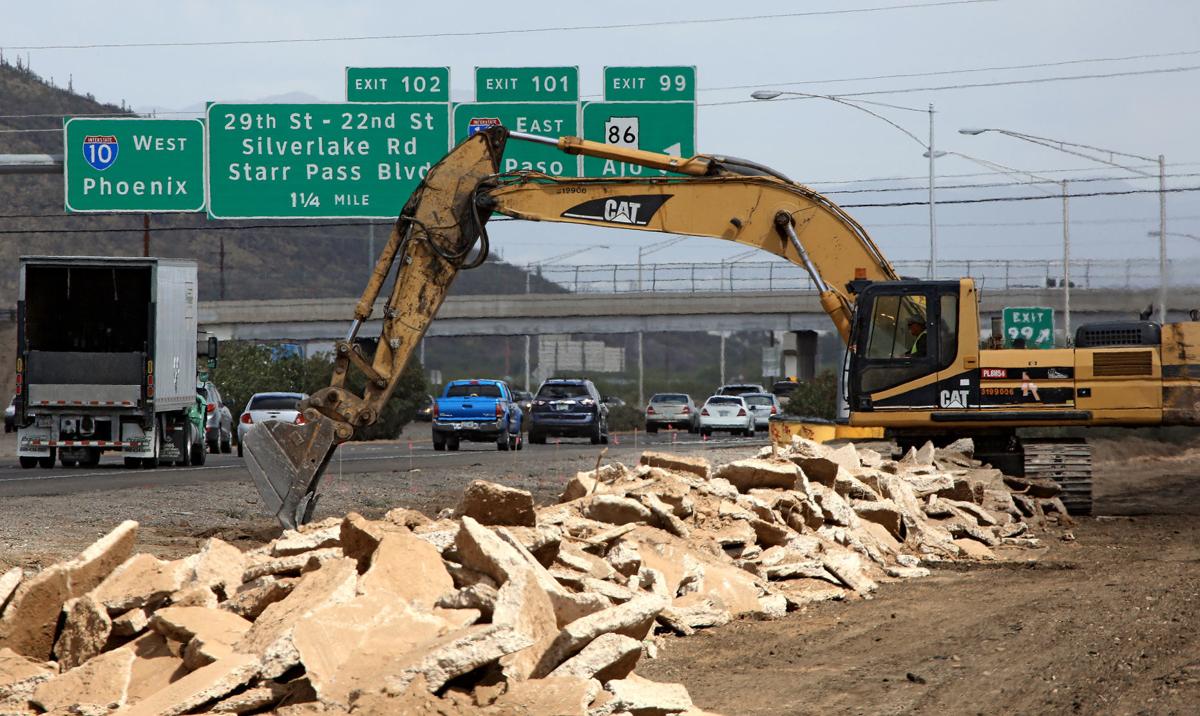PHOENIX — Arizona motorists would pay higher gasoline taxes, a new sales tax on fuel on top of that and find it’s even more expensive to register their vehicles, under ideas being discussed for financing the state’s freeway needs.
And owners of all-electric cars likely would feel a hit, too.
At a meeting Wednesday, members of the Surface Transportation Funding Task Force agreed it will take $20 billion in new dollars to construct, widen and maintain the necessary freeways to meet the state’s growing needs. That doesn’t count another $40 billion that economist Alan Maguire, a member of the committee, said is needed for other road projects.
The panel will finalize its recommendations for raising that much later this month. That includes not just likely higher costs for motorists at the pump, but figuring out the best way to ensure that the increasing number of Arizonans who are buying all-electric vehicles pay their fair share of road construction and maintenance.
One way to do that is by tracking motorists. But David Williams, vice president of Knight Transportation, said that’s likely a nonstarter with the public.
Once the committee finishes its work, it then will fall to Sen. Bob Worsley, R-Mesa, who chairs the Senate Transportation Committee, to sell the proposal — and the likely tax hikes it will take — to his colleagues. That leaves the question of whether there’s the political will to tell constituents their taxes and fees are going up.
One hurdle is that it will take bipartisan cooperation. Any new tax or increase in an existing one requires a three-fourths vote of both the House and Senate. But Worsley told Capitol Media Services he’s convinced there is enough interest in the issue on both sides of the aisle to get the necessary margin.
Central to the issue is that tax revenues have not kept pace with construction needs.
Since 1996, for example, the amount collected in gasoline taxes has increased by 36 percent, a figure that tracks the number of gallons sold. In fact, the number of gallons sold this past year is actually less than in 2007.
And the number of vehicle miles traveled has gone up nearly 55 percent in the same period, the state Department of Transportation reports.
It’s not just that the gasoline tax has remained static at 18 cents a gallon since 1991, even as the price of fuel has gone up. There’s also the fact that vehicles are more fuel-efficient.
Several counties are levying sales taxes to fund their own new roads and regional freeways. But that does not solve the underlying statewide funding shortage.
At this point, Worsley said the likely package will include an absolute hike in the gas tax. Maguire figures a dime a gallon on top of that 18 cents would raise anywhere from $1.9 billion to $2.3 billion over two decades.
But Worsley said there also needs to be some method of accounting for inflation. That can be taken care of by adding a 5 percent sales tax onto fuel purchases to the 18-cent-a-gallon levy, generating up to $12.2 billion over 20 years.
Some dollars come from the state’s 2.8 percent annual vehicle license tax.
It is based initially on the manufacturer’s base price of the vehicle. So the owner of an $30,000 sedan, SUV or van pays $504 the first year.
But the vehicle’s taxable value drops automatically by 16.25 percent each year. That makes the levy $435.67 the second year, $364.87 the third year and so on, even though the vehicle continues to use state roads.
A 10 percent increase in the vehicle license tax would raise $2.4 billion over 20 years.
Alternate fuel vehicles pose a different problem.
All-electric cars pay no gasoline tax. And hybrids generally get much better fuel mileage, meaning less gasoline purchased.
On top of that, the state gives a vehicle license tax break. So a $30,000 alternate fuel vehicle pays a first-year vehicle license tax of $12, with a 15 percent reduction annually.
Worsley said that special rate has to go.
“It’s an economic decision” to purchase an alternative fuel vehicle, he said. “We don’t need to induce people to do it.”
But the real key, Worsley said, is a fee to compensate for the lack of gas tax revenues.
One option is a “vehicle mileage tax.”
Williams said the trucking industry already uses technology to track vehicles through global positioning. But he said it’s quite something else to impose that on owners of private vehicles.
“There are privacy issues,” he said. “I think we underestimate the public feeling of being tracked.”
And there’s something else: He said it’s possible to cheat using a GPS jammer.
“So they could leave the house and drive for four hours and come back to the house, and nobody knows they ever left,” Williams explained.
Worsley said the simplest thing would be to impose a surcharge of between $120 and $150 a year on registration fees. And he would be one of those affected, having bought an all-electric Tesla.
“And roughly I’m paying (the equivalent of) 60 cents a gallon by using electricity,” he continued. “I shouldn’t feel bad about having to pay my share of the gas tax because I’m saving a lot of money by not paying for gas.”





